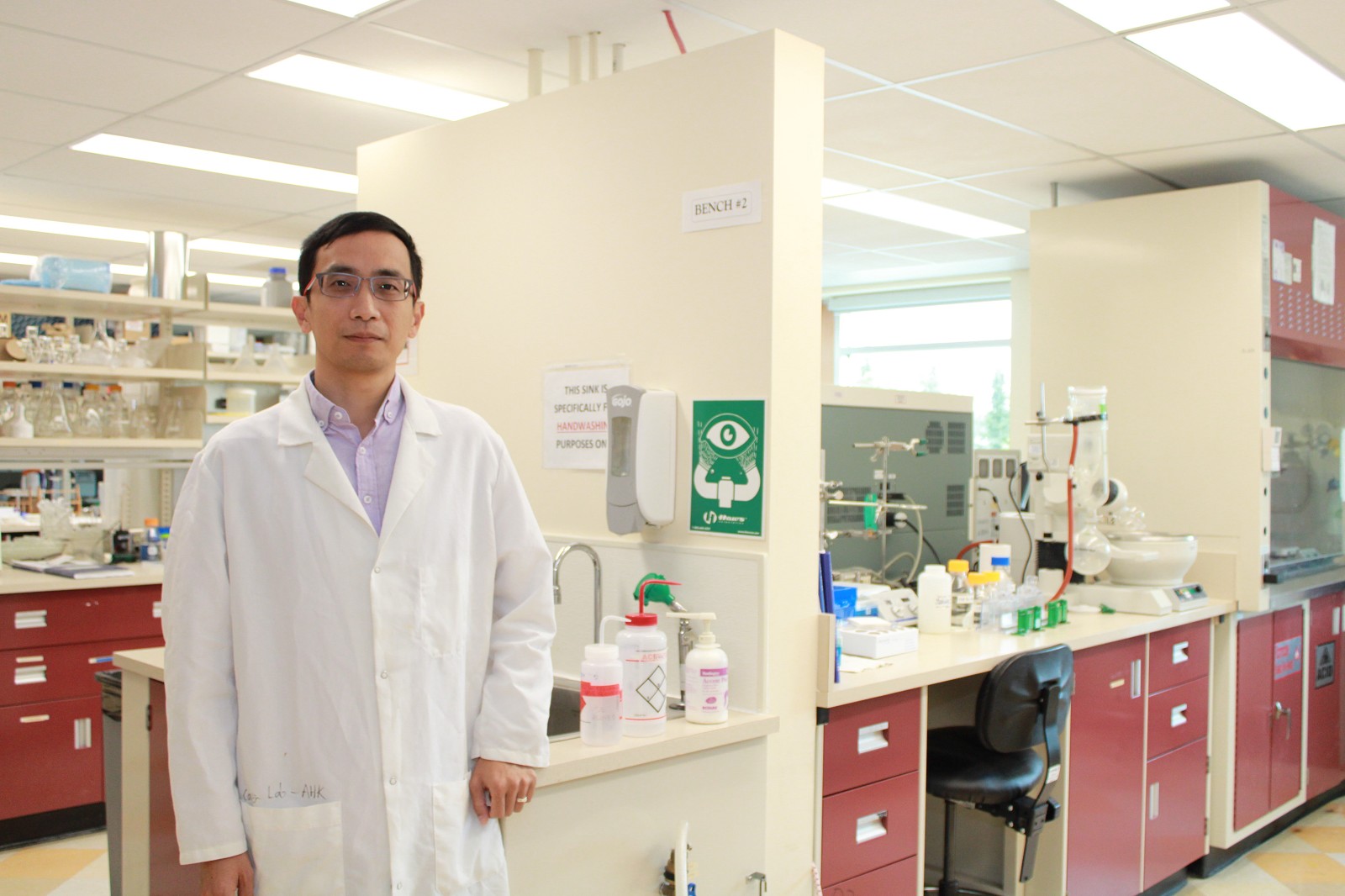How Your Donations Are Helping Develop a New Therapy to Stop the Spread of Breast Cancer
Published Monday, October 20, 2025

Dr. Jinqiang Hou of the Thunder Bay Regional Health Research Institute in the space that will be renovated to become the new research lab, where his team is developing a therapy to stop the spread of breast cancer.
Breast cancers, as with most cancers, are much more likely to be fatal when they metastasize or spread to other parts of the body. In fact, approximately 90% of all cancer deaths are directly related to metastasis. How many women could be saved just by blocking metastasis?
Dr. Jinqiang Hou and his team at the Thunder Bay Regional Health Research Institute are developing a new, targeted cancer therapy using a “migrastatic molecule” to stop the spread of cancer. However, they need to do advanced testing to confirm how well their drug works.
Thanks to your support of the Northern Cancer Fund, the team will soon have a new piece of equipment that will help them do that advanced testing right here in Thunder Bay.
“I'm pretty excited about our progress,” said Dr. Jinqiang Hou, a scientist at the Health Research Institute and Lakehead University. “Preventing metastasis is important because the leading cause of death in breast cancer isn't the primary tumour, but the cancer spread.”
Dr. Hou's team is targeting triple-negative breast cancer (TNBC) in particular with their migrastatic drug. TNBC is one of the most aggressive types of breast cancer – and has some of the worst outcomes. In part that's because it is more likely to metastasize and can even metastasize in its early stages.
“Metastasis occurs in most TNBC patients,” Dr. Hou said. “If we are able to stop or slow down the cancer from spreading, we might be able to save lives.”
There are “pathways” or a series of steps that trigger metastasis. Disrupt the pathway, and you can prevent metastasis. One of these steps involves a protein called lysophosphatidic acid receptor 1 or LPAR1.
“If we see calcium levels inside the cells go up, we know that LPAR1 has been activated,” Dr. Hou said. LPAR1 activation is when the cancer cell starts metastasis. “If our drug successfully blocks the activation, then calcium will decrease in that cell.”
That's the sign Dr. Hou is looking for to prove their migrastatic drug is working.
However, scientists need to have the right tools in place to measure calcium levels at the right time. That's where you come in. Your donations to the Northern Cancer Fund helped purchase a new FlexStation3 Microplate Reader, one of the most advanced tools available for studying cells.
It's also a complex tool. Think of those test tube experiments you did in school. You would look at the test tube and note changes again and again at different times. Each time, you might take a mental “snapshot” of what had happened.
But the FlexStation3 allows you to look at 96 test tubes at the same time, dramatically increasing the amount of research you can do at once. The FlexStation3 also automatically “sees” and measures biochemical reactions in real time rather than just snapshots. That's important because the calcium reactions Dr. Hou and his team are watching for happen very quickly – all within one minute.
“With the FlexStation3, we can test hundreds of molecules within days. That means we can evaluate the (migrastatic drug) faster, and test hundreds of compounds to find the best one,” he said.
In other words, the FlexStation3 is a powerful tool that will show whether or not Dr. Hou's migrastatic drug is working, and what drug formula works best.
Dr. Hou said that the search for migrastatics is still relatively new compared to other areas of oncology. However, an increasing number of research teams around the world are now investigating this promising approach – and you're supporting research happening right here in Thunder Bay that could lead to a breakthrough. Dr. Hou believes that any drug they develop may also help prevent metastasis in other deadly cancers such as lung and pancreatic cancer.
Donate to the Northern Cancer Fund today to support more local cancer research and be a part of this exciting new discovery!
healthsciencesfoundation.ca/donate
Article by: Graham Strong